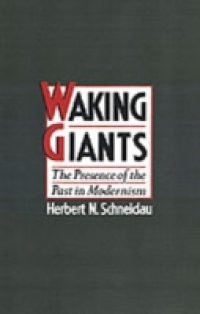This is a study of the most paradoxical aspect of modernism, its obsession with the past. Eliot wrote that the artist must be conscious "not only of the pastness of the past, but of its presence." This creed permeated the movement: Modernists believed that the energies of the past could be resurrected in modern works, and that they could be the very force that makes those works modern: the urge of Pound and others to "make it new" stemmed from seeing the past as a source of renewal. Schneidau focuses on separate texts that incorporate these concepts: Joyce's Ulysses, Hardy's poems, Forster's Howards End, Conrad's Secret Agent, Sherwood Anderson's Winesburg, Ohio, and finally Pound's Cantos. In his discussions, many little-noticed connections are examined, including a transatlantic set: Hardy with Pound, Forster with Fitzgerald, Joyce and Lawrence with Anderson.

